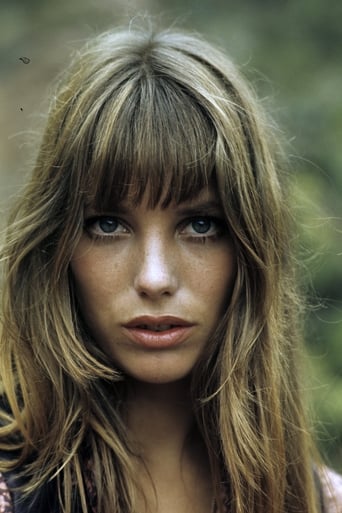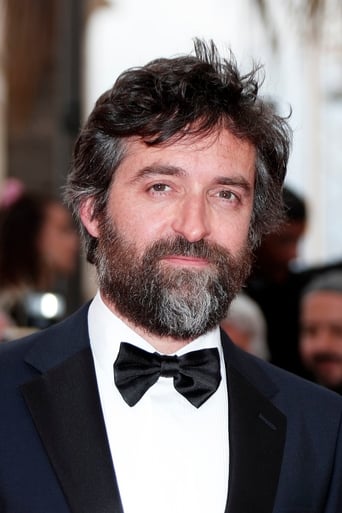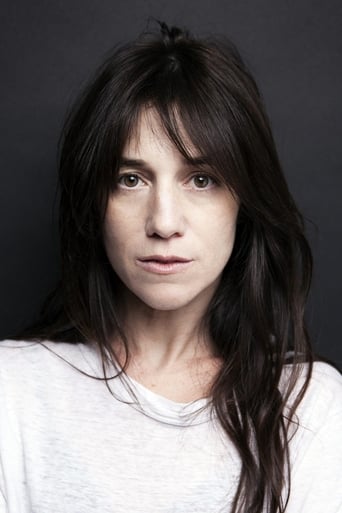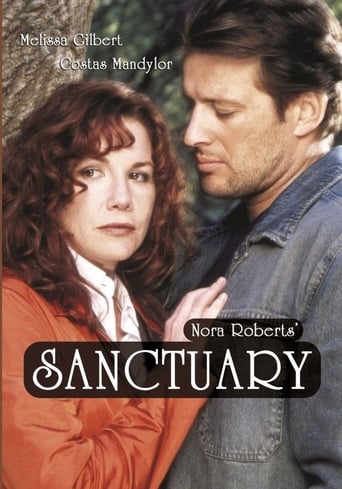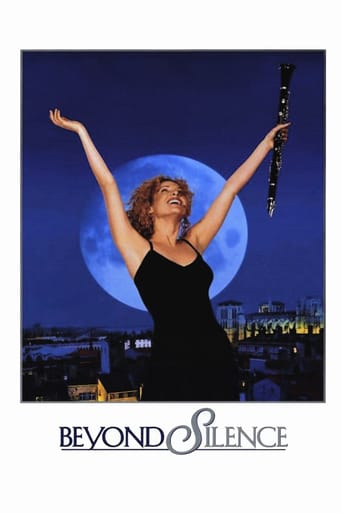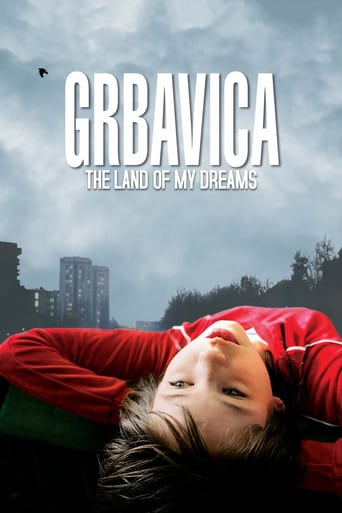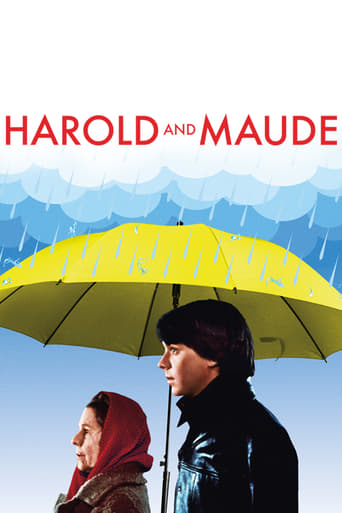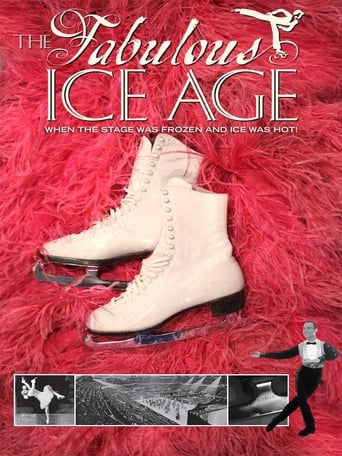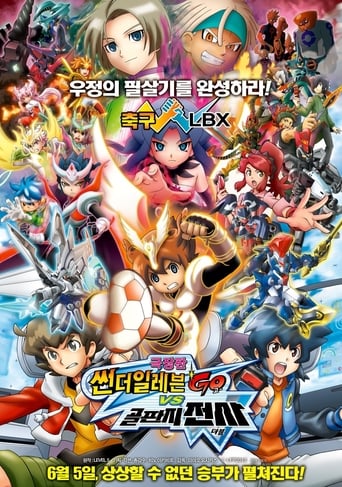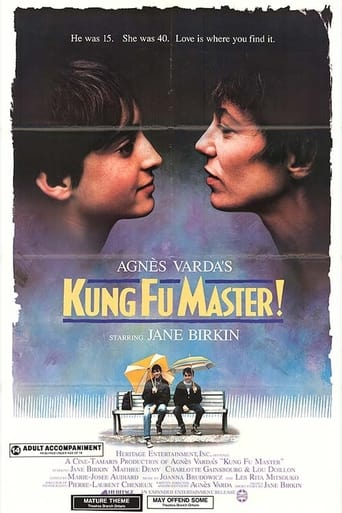
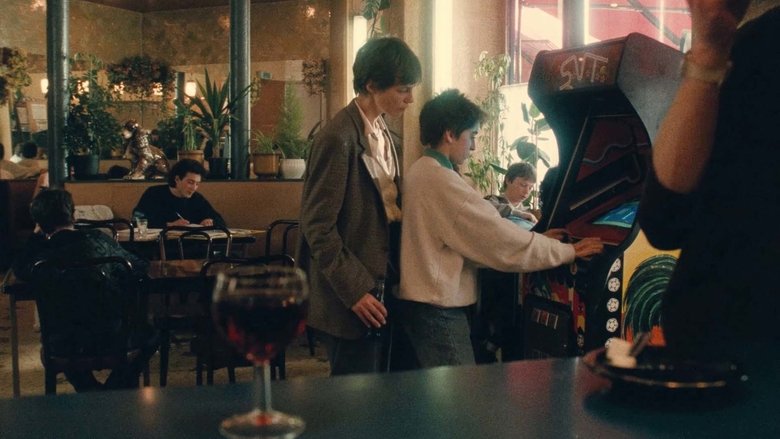
Kung-Fu Master! (1988)
A lonely 40-year old woman finds herself shattering taboos by falling in love with the 14-year old Julien – but is it romance, or a desperate attempt to turn back time in the face of middle age?
Watch Trailer
Cast


Similar titles
Reviews
A requiem for a long-lost youth begging to close the door on the past bereavements by tricking the ungainly mother living her lorn childhood dream; This time with the pure, yet infeasible love of a playful child. Such doomed to failure passion for an immature boy seems to be incontrovertible to all the sane,mature beings, yet the irresistible temptation of being cherished and loved by someone after a long time, even for a small moment, makes the ill-fated adult mother blind to the consequences. An uncanny story which which may choose to express itself simply and plainly, by not going too deep and remains at the surface with its characters, but still is satisfying,well-crafted and well-played./ B+
The story here is about a woman falling for the 14 year old classmate of her daughter's, but forget about the story now, it's not a prurient film of course and seeing just a 'social issue' movie would miss the whole point. This is a small exercise on context by Varda but as astute as ever.Varda seems to be parodying the notion that her film would have just a social relevance by having the AIDS scare of the time so prevalent throughout - the film is from the late 80s, it evokes a distinct air of the time when youths crowded arcade parlors and TV segments on HIV sounded doom for mankind - or preempts it, perhaps unsure herself if it's not unavoidably going to be that in the end.But see something else, about the narrative horizon in which things acquire their significance.The woman who simply has these feelings one day that threaten to bring down everything, in context of what she experiences, it's a real affection for the boy, it shakes her in earnest. The boy who acts all grownup around her, bringing her flowers like a man would, later in a hotel plans to seduce her, but Varda has specifically taken care to show that he becomes just a kid with his peers or always off to a video game.The film's title comes from a video game that he plays in the arcade parlor, in the game's nested story-within a hero fights monsters to make it all the way to the top level so he can set free a princess kept prisoner. This is of course a deliberate confluence by Varda. We'd like to think of love in this way, as something that frees us, but what if it's sometimes fiction? Meaning, the woman is simply not mindful that the boy inhabits a wholly different context than hers, simply playing a game of love.And this is what Varda marvelously depicts later in a scene where the kids are goofing with Nazi paraphernalia in a room. A parent who walked in and thought the kids have strayed into budding Nazism would have only been misled by appearances, inhabiting a horizon in which objects (Nazi stuff) are charged with their narrative significance. But as the scene plays out Varda shows that it's evidently just another game for them.This is the exercise, on how phenomena give rise to illusory narrative, on how illusory narrative traps us in illusory significance, chimeras of our desires. It isn't about nostalgia or passionate love. Love doesn't equal truth, unless it's shared in truth. This was a point made in Le Bonheur. In my ongoing project I'm after filmmakers who abet mindfulness, the wisdom that comes from it, and Varda has this.
There's a good reason why the English language title for Agnes Varda's new film was borrowed from a video arcade game. Beyond the obvious metaphor of the game itself it spells out very clearly the lack of pretension in Varda's story of a forty-year old housewife who falls in love with a fourteen-year old schoolboy. On its surface the film is about an older woman recapturing the passions of youth, and a young boy's awkward reaching out toward maturity. But underneath is a thoughtful look at the erosion of old-fashioned romantic ideals in an age of safe sex and AIDS awareness, a fact Varda gracefully acknowledges in the final, chilling scene, which (in a subtle way) shows the darkest side of adolescent peer pressure. It's a quiet, undemonstrative drama; Varda has a poet's sense of how much to say and how much to leave unsaid, and the few remaining words she leaves in the capable hands of a first-rate cast. In a daring casting decision the director's own son handles the role of the teen lover, and with surprising skill for a kid his age.
a teenager boy, a middle-aged woman. the love between these two? what kind of ending you will give it? it is a delicate movie in the sense of emotion description. From the camera, the director makes us feel that there is a man inside that little boy, who loves the "kung fu master" video game very much. His eyes talk like a man, his hands move like a man, he acts like a man in front of that woman. It is possible to forget about the big age difference between these two. At this point, I think the director did a good job. what kind of ending you will give to a love story, not necessarily this one, certainly can talk about how you see the world and the love and relations between human beings. I can't help thinking about my own ending in the whole process of watching the film. To me, the most important part is not the ending the director shows, it is the ending in my own heart. What is love's perfect ending? Does "living together from then on" really answers for all?


